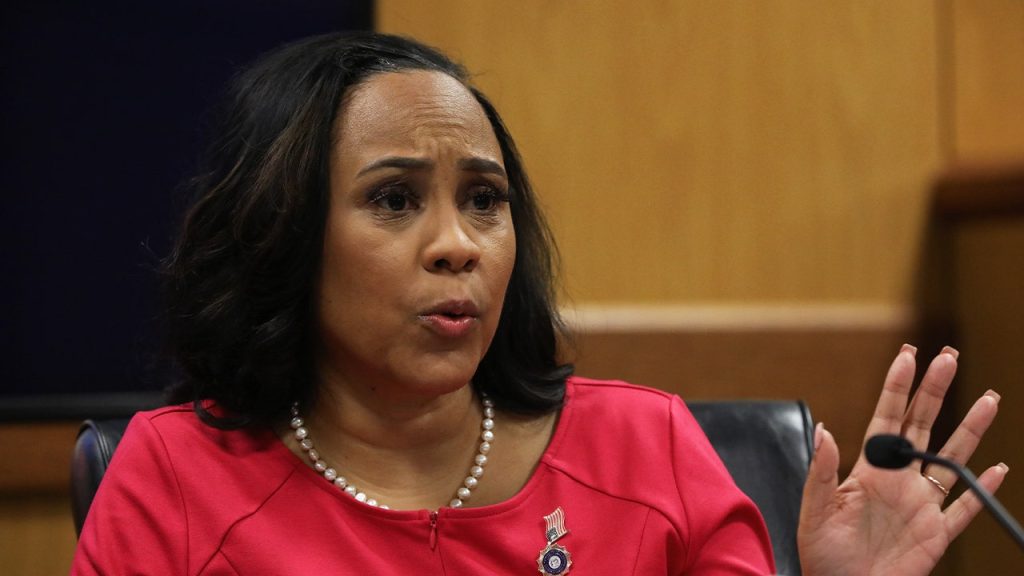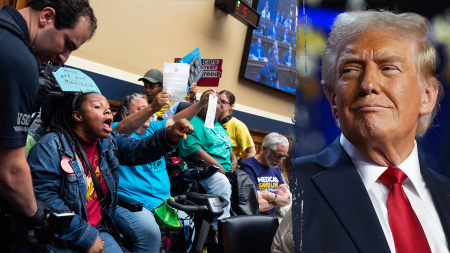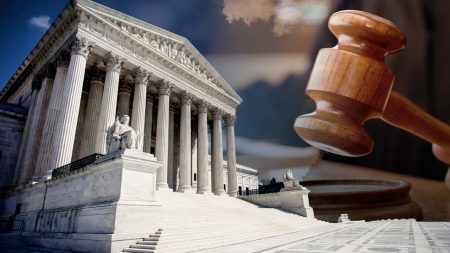The ongoing legal battle between Fulton County District Attorney Fani Willis and a Georgia Senate committee reached a critical juncture in December 2024, when a judge ruled that state lawmakers could subpoena Willis as part of an investigation into alleged misconduct during her prosecution of former President Donald Trump. This decision, issued by Fulton County Superior Court Judge Shukura Ingram, requires Willis to submit a list of claimed privileges and objections to the subpoenaed materials by January 13, 2025. Willis, represented by former Georgia Governor Roy Barnes, immediately announced her intention to appeal the ruling, asserting that the judge’s decision was erroneous. This development further complicates the already tangled web of legal proceedings surrounding Willis’s prosecution of Trump and raises questions about the scope of legislative oversight and the potential impact on the ongoing election interference case.
The Senate committee’s inquiry stems from allegations of misconduct against Willis during her investigation into Trump’s attempts to overturn the 2020 election results in Georgia. The investigation, which led to a grand jury indictment of Trump and several others, has been highly contentious and politically charged. Republicans, including members of the Senate committee, have accused Willis of pursuing the case for political gain and have questioned her prosecutorial tactics. The subpoenas issued to Willis seek testimony and documents related to her handling of the Trump investigation. Willis has argued that the subpoenas are overly broad, lack a legitimate legislative purpose, and exceed the committee’s authority. The judge’s decision to uphold the subpoenas, however, empowers the committee to compel Willis’s cooperation, subject to her appeal.
Adding another layer of complexity to the situation is a recent Georgia appeals court decision disqualifying Willis and her team from the Trump election interference case. The court cited an “appearance of impropriety” stemming from Willis’s romantic relationship with special prosecutor Nathan Wade. This disqualification has been hailed by Trump as vindication and further fueled his claims that the case is politically motivated. The disqualification adds to the uncertainty surrounding the future of the election interference case and raises questions about how it will proceed without Willis at the helm. The appeals court’s decision reinforces the perception of bias and potential conflict of interest, potentially undermining public trust in the judicial process.
The timing of the judge’s ruling on the subpoenas is also significant, as the Georgia legislative term ends on January 13, 2025, the same day Willis is required to respond. This deadline creates a tight timeframe for Willis’s appeal and raises questions about the committee’s ability to complete its investigation before the end of the legislative session. Republican state Sen. Greg Dolezal, a key figure in the Senate committee’s efforts, has expressed his intention to re-establish the committee in the 2025 legislative session, indicating a commitment to pursuing the inquiry into Willis’s conduct. Dolezal welcomed the judge’s decision, emphasizing his belief that it affirms the committee’s authority and sets the stage for Willis to provide testimony under oath.
The confluence of these legal developments paints a picture of intense political and legal maneuvering. The Senate committee’s investigation, the judge’s ruling on the subpoenas, and Willis’s disqualification from the Trump case are all intertwined and contribute to the ongoing controversy surrounding the election interference investigation. The outcome of Willis’s appeal and the future of the Senate committee’s inquiry will have significant implications for the ongoing legal proceedings against Trump and his co-defendants, as well as for the broader political landscape in Georgia. The clash between the legislative and judicial branches adds another dimension to the already complex legal battle, raising questions about the separation of powers and the limits of legislative oversight.
The ongoing legal saga surrounding Fani Willis, Donald Trump, and the Georgia election interference case highlights the deep political divisions and legal complexities that continue to shape the post-2020 election landscape. The judge’s decision to uphold the subpoenas against Willis, coupled with her disqualification from the Trump case and the looming end of the legislative term, creates a highly charged atmosphere with significant implications for all parties involved. The outcome of Willis’s appeal and the future actions of the Senate committee will be closely watched as the legal and political drama continues to unfold.










